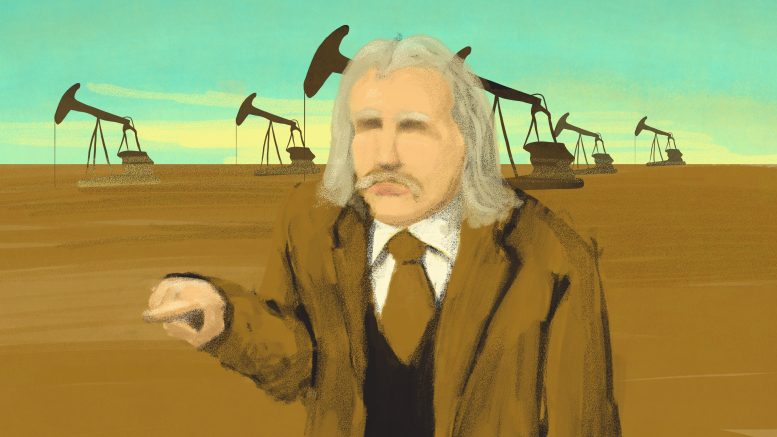Living in the days of rapidly worsening climate change, many people may be familiar with the idea of having a carbon footprint.
The term, which describes the amount of greenhouse gas emissions caused by individuals or groups, has been widely adopted as a way to quantify the impact that we as individuals have on the changing climate. Various organizations — including the United Nations — offer carbon footprint calculation tools to assess the effects that one’s household has on the environment.
Many may be less familiar with the fact that the carbon footprint calculator was originally created as a marketing tool — by an oil company, no less.
BP, one of the largest oil giants in the world, hired an ad company in 2004 to help shift the focus of emissions and climate change from oil companies to individuals. This collaboration created the carbon footprint calculator and popularized the notion of a carbon footprint.
This doesn’t mean that trying to measure and reduce one’s own contribution to climate change is a bad thing. Individuals certainly contribute to climate change, there is no doubt about that.
The real problem with tactics like this — regardless of which company or industry is involved — is that by pushing responsibility onto the individual, companies are attempting to avoid being held accountable for their actions, and are able to buy themselves time to continue harmful practices in the pursuit of profit.
Take Purdue Pharma, the pharmaceutical company behind the opioid OxyContin, as an example.
In 2020, Purdue pleaded guilty in U.S. federal court to knowingly promoting opioids — a highly addictive class of painkillers — to doctors suspected of writing illegal prescriptions, and to bribing doctors with kickbacks to increase the prescription of opioids. The company also admitted to obstructing the U.S. Drug Enforcement Administration’s efforts to take on the growing opioid crisis.
When Purdue was just beginning to attract scrutiny for its pill-pushing, the company used a strategy very reminiscent in tone to BP’s approach to climate change.
“We have to hammer on abusers in every way possible,” wrote Richard Sackler, the then-president of Purdue, in an internal email. “They are the culprits and the problem. They are reckless criminals.”
Human society is addicted to the fossil fuels that oil companies produce. And, as with Purdue and the opioid crisis, oil companies are working very hard to make sure it stays that way.
In the states, for instance, oil industry lobby groups have been going to great lengths in recent years to oppose infrastructure projects and tax incentives that would support electric cars. Further, last year a U.S. congressional investigation found that the oil industry has been deceiving the general public by continuing to invest massively in fossil fuel production, all while touting its commitment to more renewable energy.
It’s a bit rich for oil giants to try to place the blame for climate change on individuals while simultaneously working to limit the environmentally friendly options available and expanding the fossil fuel industry.
Moreover, oil companies have been aware of the harm that their industry causes to the planet for decades. In the late 1970s, researchers for Exxon — another of the world’s largest oil companies — predicted the future effects that fossil fuels would have on the climate with incredible accuracy. Despite this, the company ran ad campaigns for years questioning the validity of climate change research.
This is similar to Purdue’s role in the opioid crisis. Purdue knew that OxyContin was causing harm due to widespread abuse soon after it was introduced to the market, but kept this information a secret.
Companies like these are motivated by greed to obscure the fact that their actions cause harm. When that no longer works, they attempt to divert any responsibility for the harm they have helped cause to consumers.
We are the symptom, but corporations actively working against positive change in the name of profit are the disease.
So, what can be done about this?
One solution that many people might point toward is the idea of “voting with one’s wallet,” or refusing to spend money on products tied to corporate bad actors. This idea is good in theory, but ineffective in practice.
According to the Northwestern Institute for Policy Research, consumer boycotts rarely ever impact a company’s bottom line. Considering the fact that big oil’s profits are currently at an all-time high, something tells me that a boycott would be like water off a duck’s back.
Still, if it helps with your conscience, then by all means vote with your wallet. But if you want to actually make a difference, vote with your vote.
Purdue was held accountable by a government, not because of consumer boycotts. It’s high time that the oil industry is, too.
Elect politicians who will commit to holding the fossil fuel industry accountable for its actions. If there don’t seem to be any, run to become one. Vote out those who refuse to act.
But for the sake of the climate, do it fast. We are running out of time.




